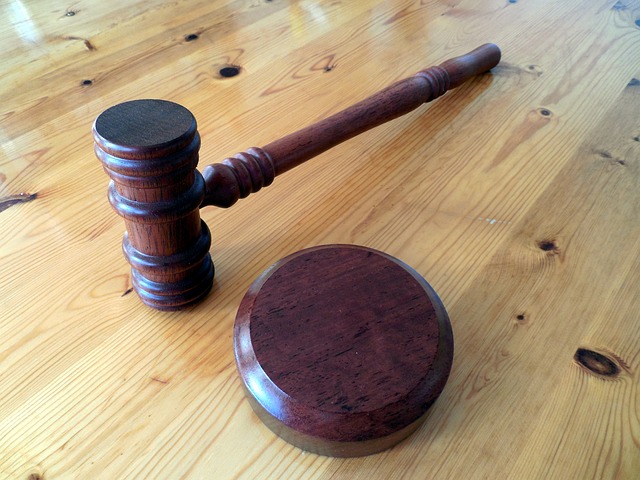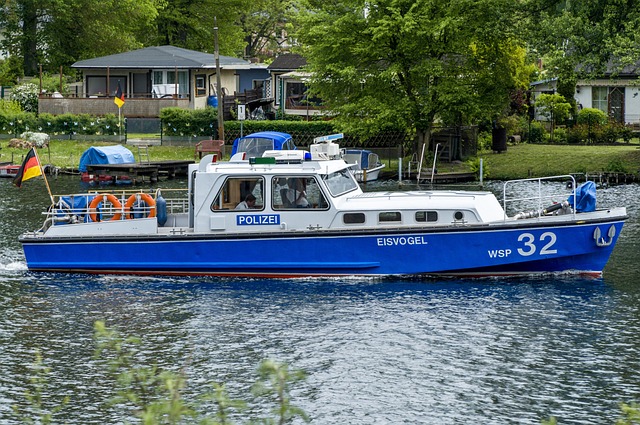Environmental Crime Trials serve as powerful tools for justice, investigating and prosecuting ecological damage through a lens of contractual and regulatory compliance. Understanding how to resolve breach of contract disputes within these trials is crucial for both legal professionals and environmental advocates. By combining legal expertise with scientific knowledge, lawyers uncover breaches in environmental protection contracts, setting precedents that impact future strategies. This meticulous process involves document review, expert testimony, and strategic advocacy, aiming for justice while preserving ecological balance. Key dispute resolution methods include mediation and comprehensive defense strategies that address both contractual obligations and broader environmental justice. Mastering these techniques is essential for navigating complex breach of contract scenarios, leading to effective resolutions in environmental crime cases.
Environmental Crime Trials: Holding Perpetrators Accountable
This comprehensive guide explores the realm of environmental crime trials, delving into the legal intricacies that underpin these complex cases. From understanding key concepts like breach of contract to mastering evidence presentation and strategic argumentation, we provide insights for achieving environmental justice. Learn effective strategies for resolving disputes, particularly focusing on breach of contract issues, ensuring responsible accountability and sustainable outcomes in the face of ecological challenges.
- Understanding Environmental Crime Trials: A Legal Perspective
- Identifying Contract Breaches in Environmental Cases
- The Role of Evidence and Legal Arguments
- Resolving Disputes: Strategies for Effective Environmental Justice
Understanding Environmental Crime Trials: A Legal Perspective

Environmental Crime Trials offer a unique legal lens into addressing issues related to environmental degradation and pollution. These trials are designed to hold individuals, corporations, or organizations accountable for their actions that cause harm to the environment. Understanding how these cases unfold is crucial in navigating the complexities of general criminal defense. When an environmental crime is suspected, law enforcement agencies across the country initiate an investigation, gathering evidence at all stages of the investigative and enforcement process.
The legal battle in such trials involves examining contracts, permits, regulatory compliance, and the intent behind actions that led to environmental damage. This includes scrutinizing agreements related to How to Resolve Breach of Contract Disputes as these can play a pivotal role in proving negligence or intentional harm. The outcome of these trials sets precedents, shaping future legal strategies for both prosecutors and defendants, and ensuring that environmental crimes are treated with the same rigor as any other criminal offense.
Identifying Contract Breaches in Environmental Cases

Identifying contract breaches in environmental cases is a meticulous process that demands a deep understanding of both legal frameworks and scientific principles. When a company or individual fails to adhere to the terms agreed upon regarding environmental protection, it can lead to significant legal repercussions. Legal professionals specializing in environmental law must thoroughly examine contracts, regulatory requirements, and evidence to pinpoint these breaches. This involves analyzing permit conditions, monitoring compliance with pollution control measures, and investigating any deviation from established environmental standards.
By employing a systematic approach, including document review and expert testimony, lawyers can navigate the complexities of these cases. They help clients, be it corporate or individual, throughout all stages of the investigative and enforcement process. This includes negotiating settlements, representing them in trials, and securing favorable outcomes. The key lies in presenting compelling evidence that demonstrates the breach and its impact on the environment. With an unprecedented track record of success, legal teams can ensure justice is served while protecting the ecological balance.
The Role of Evidence and Legal Arguments

In Environmental Crime Trials, the role of evidence and legal arguments is pivotal to resolving complex disputes. Accurate and robust evidence, such as environmental impact reports, toxicology studies, and expert witness testimonies, plays a crucial part in presenting a compelling case. Legal arguments should focus on how these evidence pieces fit within the framework of relevant environmental laws and regulations, demonstrating clear breaches that warrant punitive actions. By meticulously piecing together these elements, prosecutors can navigate the intricate legal landscape, ensuring justice is served for ecological transgressions.
Understanding how to resolve breach of contract disputes is also essential in these trials. In cases where environmental agreements are at stake, both prosecution and defense must master the art of contractual interpretation. This involves scrutinizing the terms and conditions set forth in initial agreements, examining whether parties have fulfilled their obligations, and addressing any discrepancies that could lead to legal ramifications. Through effective advocacy and strategic analysis, jury trials across the country can become powerful tools in combating white-collar and economic crimes related to environmental degradation.
Resolving Disputes: Strategies for Effective Environmental Justice

In environmental crime trials, resolving disputes for effective environmental justice goes beyond legal technicalities. It involves strategies that balance punishment with restoration and prevention. One key approach is mediation, where parties in dispute come together to negotiate a resolution facilitated by a neutral third party. This method not only saves time and costs but also fosters collaboration, ensuring all stakeholders’ concerns are addressed.
Moreover, for complex cases involving breaches of contract or regulatory violations, understanding the respective business structures and motives is crucial. A well-rounded general criminal defense or white-collar defense strategy should consider these nuances. By examining how environmental crimes intersect with contractual obligations, legal teams can craft solutions that address both the breach of contract disputes and broader environmental justice concerns, leading to more comprehensive and effective resolutions.
Environmental crime trials play a pivotal role in upholding environmental justice, demanding accountability through robust legal mechanisms. By understanding the intricacies of these trials, identifying contract breaches effectively, and employing strategic evidence and arguments, we can navigate complex disputes. Ultimately, resolving these disputes requires innovative approaches to ensure that environmental protections are not only observed but also enforced, leading to a more sustainable and equitable future. For practitioners, mastering the art of resolving breach of contract disputes in environmental cases is key to fostering environmental stewardship and justice.






